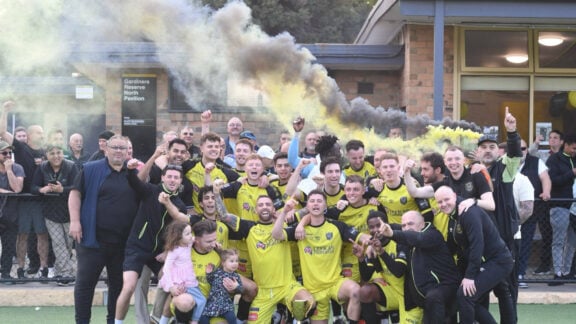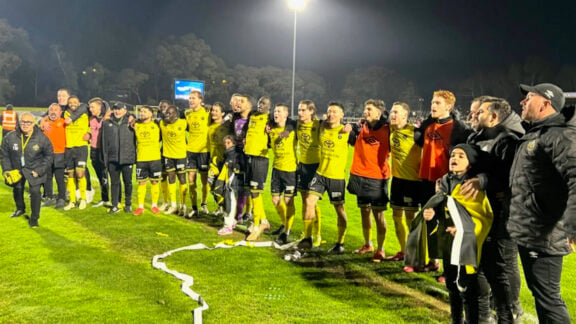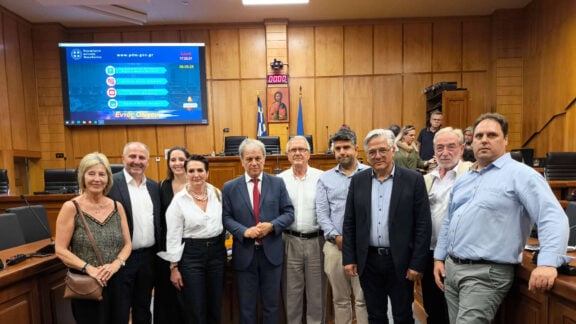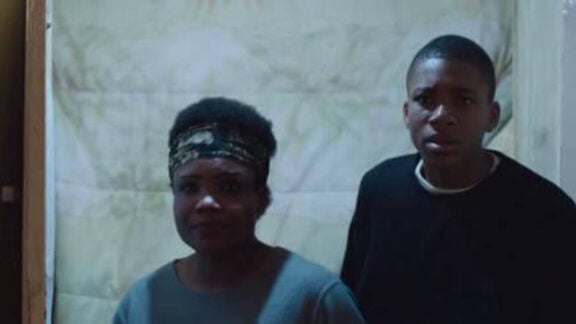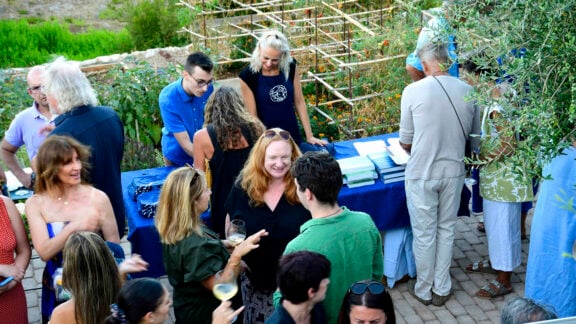The garden presented as visibly more unkempt than in my previous visits. Here and there, a few wild flowers broke the hegemony of green within the lawn, a presumption that would not have been tolerated had the master of the house been in possession of all his powers.
Climbing the steps to the front door, I noticed that its rusted iron lacework with flaking pieces of white paint was enshrouded in cobwebs studded with dead flies. This was a portal that had not been opened to strangers for a significant amount of time.
“Come round the back,” the master of the house’s voice called. “I’m in the garage.”
I ambled around the side of the house noting the half barrels that once contained saplings of fruit trees and a vast array of orchids. Now they were overgrown with yellow weeds, sickly and stunted, as if they could not make up their minds whether they wanted to live or to die. A heap of rotting firewood stood mouldering in a corner. And within the small side door that led to the garage, I could discern a single light bulb hanging from a cord. There, seated at an oil-cloth covered table that used to be in the kitchen when I was a boy, he sat, reading Neos Kosmos. The paper was creased as if it had been folded and refolded a number of times and on its facing page I saw a row of photographs. His index finger was placed upon one of them, as he mouthed the pictured person’s name, a veritable litany of the dead.
“You will have to excuse my appearance,” the master of the house apologised, brushing pieces of tissue, breadcrumbs and dandruff from his stained blue tracksuit. “I seldom go up into the house any more. It’s too hard to climb the stairs and ever since my wife died, there are too many painful memories.” There is a photograph of both him and his wife hanging over the sink. That sink also used to be in the kitchen before the nineties renovation. At that time, it was transferred to the garage, where it continued to be used, leaving the good sink upstairs as a display sink, for visitors who increasingly never came. The picture is faded, but from the gaudy fashions and the bouffant hairstyles, it can plausibly be dated to the 1980s. The master of the house is trim, dapper and charming. His wife is vivacious and imposing in the manner that only women who know their beauty is universally appreciated can be. They are both smiling, as if rejoicing in the knowledge that they are both at the peak of their physical and mental powers. A smudge at the bottom left-hand corner of the frame turns out to be a millipede, bleached white in death, hanging from a defunct thread of a spider’s web.
“We had just gone to dinner with the Minister for Education at the Grand Bretagne in Athens,” the master of the house reminisced wistfully. “As I recall he had given me a book. Kazantzakis’ Christ Re-crucified, I think it was. Let me have a look.” He rose slowly from his chair and hobbled to a tarpaulin covering a series of objects on the far side of the wall. He lifted it carefully to reveal row after row of boxes, all full of books.
“These are the important ones,” he mentioned. “The ones you would have seen upstairs as a boy in the study are long gone. My eyes are not what they used to be and I can no longer absorb information easily. My daughter doesn’t concern herself with philosophy, history or theology, so she is getting rid of them. We asked a few of the schools, but they showed no interest. It’s surprising how many people don’t read any more. But these ones, they tell a story. This one here, a biblical concordance, was given to me by Patriarch Athenagoras himself. See, for yourself, it’s inscribed. I was a student at the time. And this one here, this one is my pride and joy. It is autographed by the great Yiannis Psycharis himself. No, of course I did not know him but when I was a boy in Athens, my teacher kne … Oh, here it is. I tell a lie. It’s not Christ Re-crucified. It is The Fratricides. Look at the dedication here: ‘With immense respect…’ Yes, I was a figure to be reckoned with back in the day, let me tell you. I remember once during a trip to Greece, Yiannis Ritsos telling me … hang on … here it is. Have a look at this. This is a pebble autographed by the poet itself. There is a drawing on it that he executed. And here are his Lianotragouda, autographed by him. I haven’t opened this in years.”
I rummage through the boxes, exclaiming with rapture as I find embedded within the pages of the books, notes and mementoes attesting to a relationship with important Greek literary and political figures of the modern age, as the master of the house makes me coffee, emitting rhythmic groans every time he reaches for the sugar.
Shuffling towards me, he extends the coffee cup with a trembling hand, spilling the coffee in all directions.
“It’s good luck,” I laugh and he stares at me with a pained expression. “This is the last cup of coffee I will ever make for someone,” he whispers. I am being admitted to the nursing home in two days’ time.”
I place my hand on his. It is liver-stained but surprisingly soft compared to the hands of his contemporaries I have held in this country. This is a hand that never knew the factory. The calluses on his fingers betray the identity of someone who has lived his whole life with pen in hand, marking time through the rustle of pages.
“That is why I have asked you to come here,” the master of the house continued softly. “In ways I can’t describe, our acquaintance has made an impression upon my life. I want you to have something to remember me by.”
Reaching across the table, he retrieved a Woolworths re-usable bag. From inside it emerged a rather tattered Vostanzoglou’s Anti-Lexicon, the object of my most ardent desire as a child.
“This is the first edition. I seem to recall you asking to borrow this when you were younger.” I had indeed, and my request was denied owing to the fear that I would damage it in some way.
“It’s inscribed. Take a look.” There were two inscriptions on the front page. One with his signature and the date of purchase in 1967 and the other bearing the following dedication: “To Kostas Kalymnios. In remembrance of a friendship. Don’t forget me.”
“May it serve as a resource for you,” the master of the house said. “Though I daresay these days you can most probably find all this information on that blasted internet. Still, many are the nights, when sleep eluding me, I sat up poring over this tome. This was my αγρυπνία. Do the same. You can sleep when you are dead.” I smiled, trying to use my cheek muscles to crush the tear that was welling up above them, threatening to spill below.
“The house will be emptied now,” the master of the house informed me. “It needs to be let out. I’m hoping that they will let me take these books with me. All the people that have given them to me are long gone but I do hope that I can sit out the remainder of my days in their company. As long as I can read anyway.”
At this point he started laughing, a rasping, wheezy laugh that convulsed violently through his body. I sprung up from my chair and fetched him a glass of water. He gulped greedily, and then fell back against his chair, languidly.
“Don’t fuss. I’m quite alright. I just remembered you telling me, that time when we were in Sydney, how as a newly-wed, your wife complained about the quantity of books you were amassing and asked what would happen to them after your death.”
“And I said …”
“And you said: ‘Bury me in a vast hole with all my books around me and my coffin open so I can reach them and turn the pages.’
“And then…?”
“‘And then use the empty spaces in the bookcases to display designer shoes’.”
“That’s right!” he chortled. “Farewell, my boy. Don’t let me keep you. Remember me.”
When I returned home late that evening, I went up to the study and sat a while, staring at the books that have been gifted to me by people that have had an inordinate influence upon my life. I toyed with the idea of placing Post-it notes on the most poignant of them, explaining who had given them to me and why they were important. Then I sighed, pulling out a volume that I expected to give to a friend the next day, replacing the empty space with the Anti-Lexicon entrusted to me by the master of the house. Having had second thoughts, I walked over to the bookcase, retrieved the Lexicon and took it downstairs into the bedroom. Just as my All-Night Vigil commenced, I muttered a prayer to all lost and slumbering books, dreaming of their masters, especially that of my Anti-Lexicon, which can be found complete on the internet, in glorious pdf.

